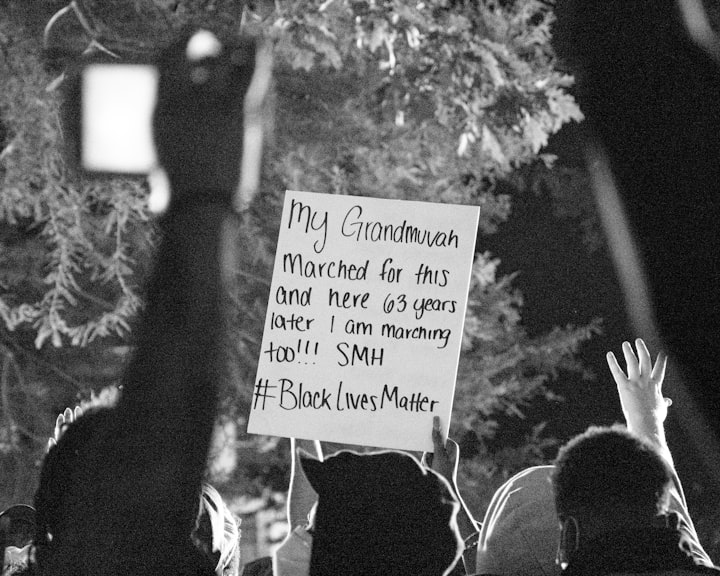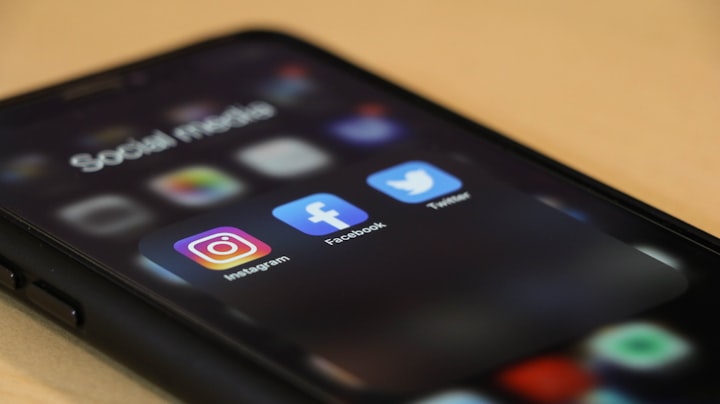The Silent Majority: There’s No Time For Apathy in 2020. #BlackLivesMatter
It is no surprise that 2020 is a year of awakening. The 2019 Bush fires set ablaze Australia. Last week in amidst of a pandemic, America is ablaze with rage over another murder of a black man in the hands of yet another policeman.

Ping!
A message popped up the group chat with a video of a police man kneeling his knee on the neck of an African-American man
‘I can’t breathe’ “Mama” “Mama” “Please stop”, he pleaded, while he gasped for air.
Bystanders on the side pleading the officer to get off him.
“His nose is bleeding.” “Please get off him.”
Until one bystander pointed out, ‘You’re enjoying this, aren’t you?”
After a few minutes, the arrested stopped breathing. Pleas escalated into desperate cries.
“Check his pulse.”
A few minutes later, the ambulance arrived, and a man’s lifeless body carried onto a stretcher. The video cuts there.
The deceased black man was George Floyd, and he is the catalyst of the ongoing protests and riot in all major American cities and around the world at this very moment. His killer is Derek Chauvin. There was three other police officer, including Asian- American did not intervene or stop Derek.
There was no resistance from George. George was unarmed. There was no damning evidence against George that a defensive lawyer can spin in court. It was as clear as day, in your face video of Derek Chauvin murdering George Floyd over a counterfeit bill. There was no excuse this time.
Like any other well-meaning human beings, I have a strong reaction to the video. Feelings of disgust, anger and sadness all snowball into one, as soon as I finish watching. It reminded me of another police brutality case, eerily similar to the Eric Garner case in 2014, where he was brutally murdered in a chokehold at the hands of NYPD. Garner also uttered the last words, “I can’t breathe,” before he passed away.
Earlier this year, two cases of unjust killings of black people were reported– on March 13 2020, Breonna Taylor, a 26-year-old emergency room technician, was shot in her apartment by plainclothes police in the early hours of the morning in Louisville, Kentucky. Earlier on February 23 2020, Ahmaud Arbery, a black jogger was shot three-times by two white men in Brunswick, Georgia.
In February 2012, The shooting of Trayvon Martin, a young 17-year-old African-American boy who has been shot down by a Hispanic self-appointed neighbourhood watchman, George Zimmerman. Zimmerman was not charged. The Black Lives Matter movement was born out of the outrage this murder. Ever since then, the movement has been spreading awareness on the violence and police brutality against African-Americans.
Rewind 30 years ago, the nation-wide riots that you see this week bore an uncanny resemblance to the LA riots in 1992. It is the result of a policemen beating Rodney King with excessive violence and was found not guilty. Anarchy, looting, cities in disarray, police were patrolling the streets armed and arresting people like it was a scene straight out to Orwell’s 1984.
Police brutality isn’t a new phenomenon. It is decades on decades of racial profiling and mistreatment of black people, rooted in systematic racism. It happens every single day. The only difference between the 1992 LA riots and the 2020 George Floyd riots is that its being filmed. Indisputable video evidence capturing the truth and circulating through the virality of social media. (No pun intended. Still amid a pandemic.)
If you are an avid listener of hip hop music, police brutality and institutionalised racism are defining themes of conscious rappers. Notable examples such as Kendrick Lamar album “To Pimp A Butterfly” (2015), Joey Badass’ album, ‘AMERIKKKA’ (2017), Mos Def’s song “Mathematics” (1991), Tupac’s “Changes” (1998), NWA’s “Fuck the Police” (1992), even as far as The Grandmaster Flash and the Furious Five with their song, ‘The Message.” (1982). With their rap lyrics eloquently reflecting the police brutality, the mistreatment of black people and the racial tension between white and black for centuries since slavery. Hip hop has always been the medium to voice these issues.
African Americans always voiced their issues of systemic racism and police brutality for years. Still, no one seems to stop and listen to them. This blind ignorance and inaction contributes to the merciless killings of their people for years.

With these injustices going on, especially as a heavy topic as police brutality and racism, it is hard to work these topics into everyday conversation because of its confronting nature. It’s uncomfortable to admit you have implicated bias towards black people within all of us, including myself. Also being Asian- Australian, anti-blackness amongst the Asian community is rampant. Yet no-one wants to talk about it within our community. (I digress. I save that for another day)
I want to dedicate this piece to the silent majority – the people who are aware of these injustices, but they couldn’t because don’t feel like their voices count. The people who want to help, but don’t know how to because they never lived the experience. Therefore, they feel like it not their place to speak up or start a conversation.
I empathise with you because I was once in that position. I’ve always paid attention to the police brutality on the news but never dared to speak up on my social media. I felt inadequate because it was not my place.
In the past, I always had my reservations on social media posting because I don’t want to come off as someone who is a “social justice warrior”. I don’t want to be accused of virtue signalling as it comes off as inauthentic and superficial. I don’t want to jump on the bandwagon because it is “hot” on the news and forget about it the next day.
As I sieve through the many social media posts on Instagram of any movement, I always question whether it is worth it even to post my thoughts about it.

To further add to my hesitation, earlier on this week, there is this trend called “Blackout Tuesday.” It is where you post a black square to Instagram to ‘show’ your support for the Black lives matter movement. There is this concept called “Performative allyship,” that irks me. It is when users partake in a social justice trend such as “#BlackoutTuesday”, although the intention is to stand in solidarity with the “Black Lives Matter Movement,” it was actually counterproductive because it was drowning out useful resources that was accumulated for years.
I believe in doing good silently. Going to protests, showing compassionate to everyone regardless of their race, sexuality and gender and having an engaging conversation about these issues with my friends all the time, offline.
But, social media becomes a barometer of convicted passion– the more you post, the more you are perceived to care. Caring from a distance and showing acts of compassion offline is not enough because apparently, is not tangible evidence. Social media is a breeding ground for preformative alley ship, and a lot of the times, intentions can be misinterpreted.
Do people only participate in online advocacy of the Black Lives Matter Movement because it is hot topic/trend on the news? How do you know if they are committed to cause after the momentum dies down? How can you tell if a media post conveys genuine concern for the cause? (Anyways, again I digress. I’ll explore the topic in the next episode.) These are the many questions that plague my mind before I even post about the cause in the first place.
However, cases such as the murder of George Floyd, the shooting of Breonna Taylor, the mass shootings of the Mosque in New Zealand, the racist attacks on Asians due to Coronavirus, it prompts you. For the sake of humanity, you need to say something about the racial injustices. You have been aware of them for so long.
But, I have to check myself for every time I decided not to be vocal about racial injustice, police brutality and a racist attack, I am contributing to the apathy, the silence of not wanting to stop these attack. It may appear that I didn’t care enough. (Damned if I do be vocal, Damned if I don’t.)
Speaking up does matters!
My point is that we can’t see the unjust killings as isolated incidences anymore. It is a pattern of behaviour amongst the police force still beckoning for systematic reform. It always signifies something deeper. Decades on decades of racial profiling, being suspected of petty crimes, unjust killings of black people accumulated; eventually, everything will escalate. (It explains the rioting and looting currently going on.)
As an Australian, the George Floyd case also prompt me to look inward into my own country and look at the incarcerations of our Aboriginal and Indigenous people. Since 1991, 432 Indigenous Australians died in custody. A particular case in 2015, which has an eerily similar last utterance of George Floyd. A 26-year-old David Dungay, a Dunghutti man, who pleaded the police by saying ‘I can’t breathe’ 12 times, and was forcibly moved to an observation cell, restrained and facedown, sedated.
Like most educated young people, developing a social conscious is one of the defining traits of our generation (if not, all generations.) I turn to the internet, to cure the curiosity bug. We grew up with information at our fingertips, and there is no excuse to ignore reality anymore.
How can you start? Educating yourself and having a productive conversation with your friends.
I emphasise on PRODUCTIVE because the purpose of the conversation isn’t to win an argument or to shame people because they are complacent or misinformed. It’s about educating people with compassion. Finding common ground and relating to them on a human level, then introducing the hard-hitting issues afterwards is a good start. If they are stubborn and refuse to listen, disengage. It’s not worth changing their minds, and it speaks to their character. The more people informed on the technicalities of an issue, the more people are aware of it and check their behaviour or recognise an racist behaviour in others.
Most importantly, PLEASE LISTEN!
Listen to the indigenous and black communities. Take their everyday experiences of what it is like to be a black person living in a society that have heavy disdain for the colour of their skin. It is also not their job to educate you on the basics of systemic racism. They are tired. They live in fear every single day, knowing if they get pulled over by police, it could be a death sentence. By educating yourself on the history of these issues, you won’t be burdening them in having to teach about these issues in the first place.
I’m not offering anything revolutionary. But, I believe in the movement, and I want to stand in solidarity with the Black community.
I always had paid attention but never had the guts to speak up. And to those people who always spoke up on Black Lives Matter, police brutality and racism, thank you for giving me the courage to write this. You inspire me. #BlackLivesMatter

About the Creator
Jenny Hu
This space is a chaotically organised mess, so there is no specific area of interest, that I would write about really. Versatility is key when it comes to writing. I’m a journalist-in-training (by no means a professional.)






Comments
There are no comments for this story
Be the first to respond and start the conversation.